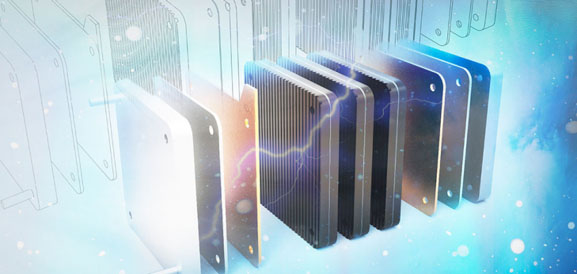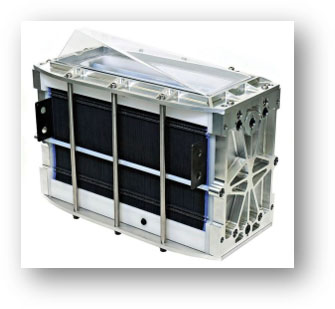

A fuel cell (source Wikipedia) is an electrochemical cell that converts the chemical energy of a fuel (often hydrogen) and an oxidizing agent (often oxygen) into electricity through a pair of redox reactions. Fuel cells are different from most batteries in requiring a continuous source of fuel and oxygen (usually from air) to sustain the chemical reaction, whereas in a battery the chemical energy usually comes from metals and their ions or oxides that are commonly already present in the battery, except in flow batteries. Fuel cells can produce electricity continuously for as long as fuel and oxygen are supplied.
GT developed material and processes for the manufacturing of bipolar plates in graphite mainly for phosphoric acid fuel cells.
GT has outstanding lifetime due to unique impregnation process even at high temperature (up to 300degC)
Materials frequently used
Get in touch here with us to know more.
